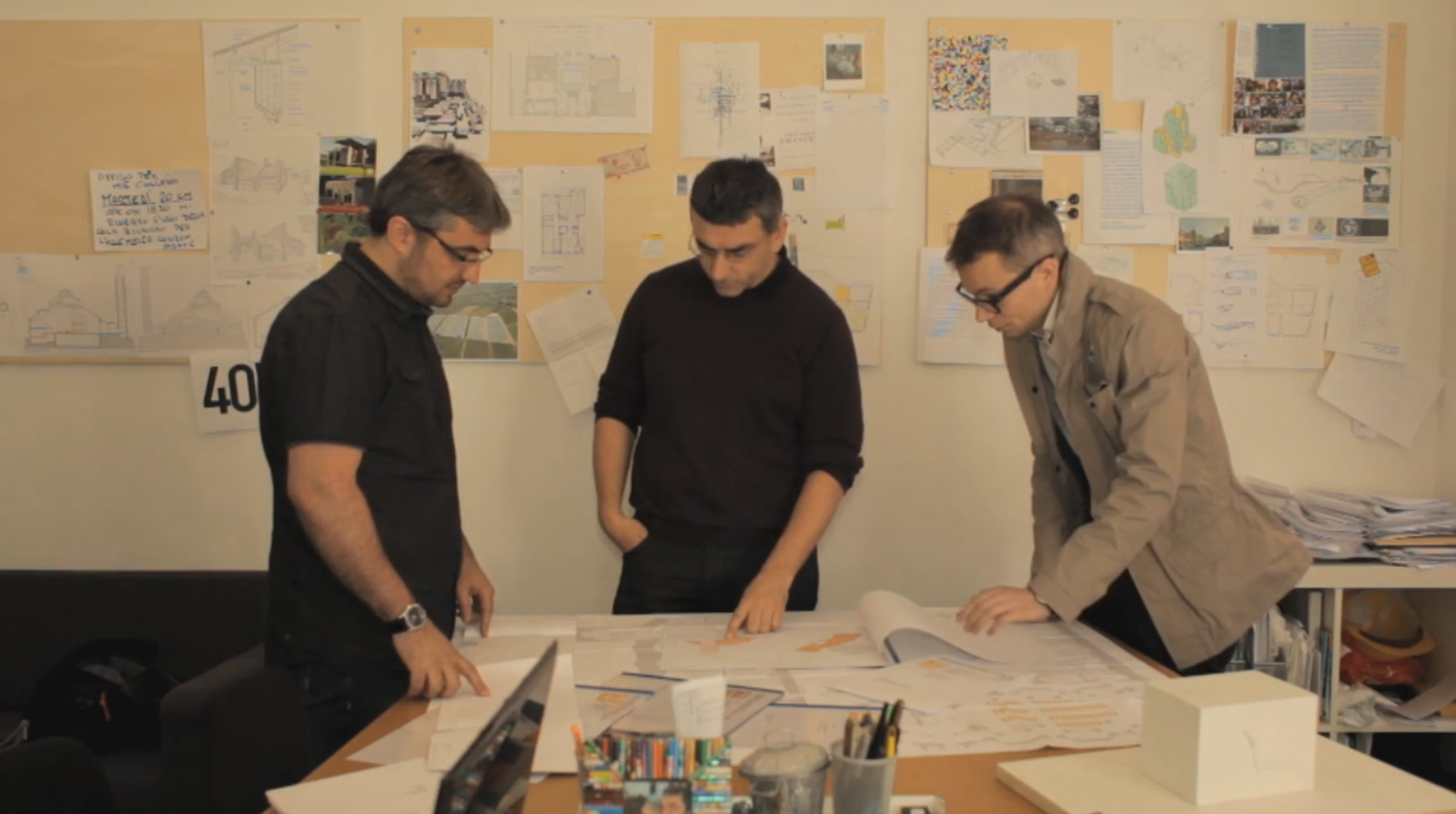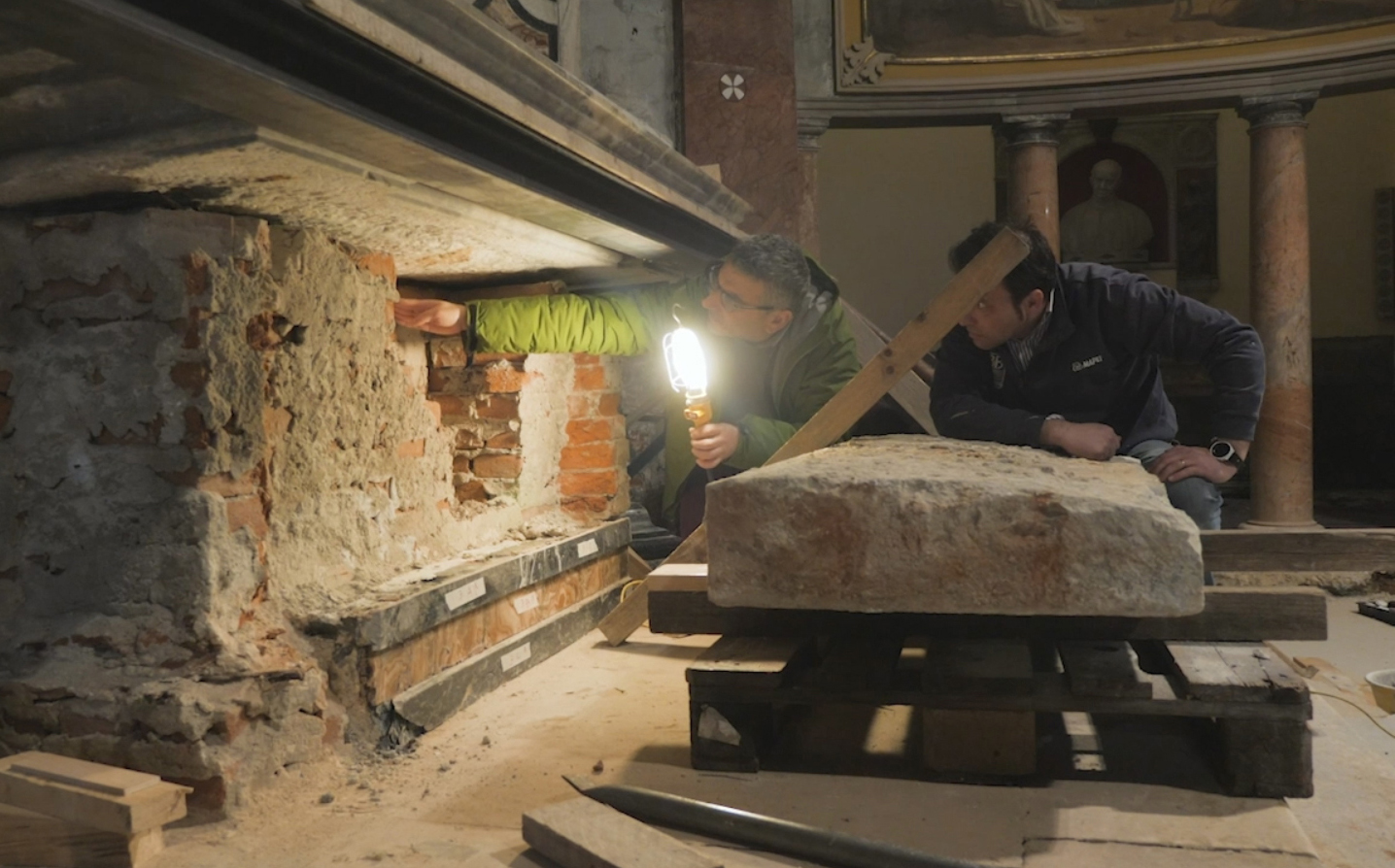“La semplicità è una complessità risolta”
— Constantin Brancusi
Bezaleel è un’équipe di progettazione che opera nel campo dell’Architettura e delle Arti per la Liturgia, il suo focus operativo sono i Luoghi dello Spirito. La nostra équipe nasce ispirandosi alla figura di Bezaleel nel libro dell’Esodo (Es. 31:1-11). L’interdisciplinarità tra Architettura e Arti è il nostro metodo di lavoro, la ricerca di una nuova sintesi tra Contemporaneità e Storia il nostro obiettivo. Per dare forma alla spiritualità: Spirituality in Forms.
_
Bezaleel is a design team working in the field of Architecture and Arts at the service of Liturgy, with a focus on Places for the Celebration of Christian Faith. Our team came together inspired by the figure of Bezaleel in the Book of Exodus (Ex 31:1-11). We work by drawing on Liturgy, Architecture and Arts in the endeavour to create a new unison between Modernity and History. Giving shape to spirituality: Spirituality in forms.


La nostra storia
Bezaleel nasce nel 2006 in occasione del primo Master in “Teologia ed Architettura di Chiese” (Direttore Severino Dianich, Facoltà Teologica dell’Italia Centrale di Firenze) e dall’entusiasmo che questa esperienza ha generato. Firenze è stata luogo di studio di storie, idee e sapienze, ma anche incontro con i testimoni di una Spiritualità che è tutt’oggi per noi, fonte viva di ogni riflessione sugli spazi celebrativi.
Nel libro dell’Esodo, Bezaleel è il primo artista chiamato da Dio “perché abbia saggezza, intelligenza e scienza in ogni genere di lavoro, per concepire progetti e realizzarli” (Es. 31:1-11). La sua figura ci invita ad approfondire e sviluppare il nostro lavoro affinché l’architettura possa essere un riflesso della comunione dell’Uomo con lo Spirito.
In questa prospettiva agli architetti di Bezaleel si sono avvicinati liturgisti, teologi e artisti concretizzando così l’obiettivo di operare nel campo dell’architettura e dell’arte per la liturgia con uno stile interdisciplinare e d’équipe che combina insieme i differenti talenti e le rispettive professionalità.
Bezaleel, nato da un incontro, vuole essere luogo di incontro:
– per un dialogo fecondo tra architettura, arte ed istanze liturgiche e pastorali;
– per un confronto creativo con la millenaria tradizione cristiana e lo spirito culturale della contemporaneità;
– per dare forma al racconto evangelico.
Firenze, 24 Maggio 2006
–
Bezaleel came into being in 2006 as a result of the first Masters in “Theology and Church Architecture” and from the enthusiasm inspired by this experience (Course Director Severino Dianich, Theology Faculty of Central Italy in Florence, in collaboration with the Faculty of Architecture). There we encountered people and ideas, witnesses for Spirit, discovering a living source for every contemporary reflection on the settings used to celebrate faith.
In the book of Exodus, Bezaleel is the first artist called by the Lord who “filled him with the spirit of God, and endowed him with skill and perception and knowledge for every kind of craft” (Ex 31:1-11). His example spurs us to deepen and develop our work so that architecture can be a reflection of the communion of Man with the Spirit.
Liturgists, young theologians and artists have been attracted to the founding architects of Bezaleel, enabling them to achieve their aim of working in the field of architecture and liturgical art as an interdisciplinary team combining their various talents and respective expertise.
“Bezaleel, which itself came to life as a result of a meeting, aims to be a meeting place:
– for fruitful dialogue between architecture, art and liturgical / pastoral needs;
– for a creative juxtaposition between the thousand-year-old Christian tradition and today’s contributions;
– to keep faith with the evangelical message.
Florence, May 24, 2006
Con spirito ecumenico, la nostra équipe si pone in dialogo con tutte le Chiese Cristiane, alla ricerca della bellezza che risplende nelle differenti tradizioni liturgiche ed ecclesiali.
_
Inspired by the spirit of ecumenism, our team liaises with all Christian Churches, seeking the beauty that radiates in diverse liturgical and church traditions.




